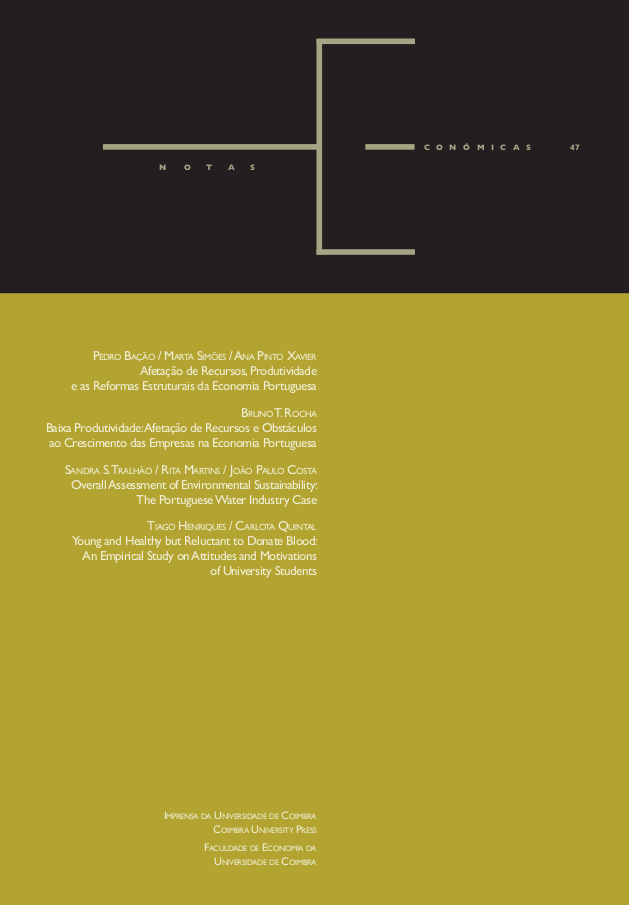Young and healthy but reluctant to donate blood: An empirical study on attitudes and motivations of university students
DOI:
https://doi.org/10.14195/2183-203X_47_3Keywords:
Blood donation, motivations, students, PortugalAbstract
Worldwide, demand for blood and blood products has increased and it is important to work on donor recruitment strategies; and because in developed countries the young have been more reluctant to donate, it is particularly pertinent to assess their motivations. The aim of this study is to assess attitudes, knowledge and motivations regarding blood donation and to identify factors associated with donation among young donors, using a sample of university
students. We use a cross‑sectional survey, collected in the city of Coimbra, Portugal, using a self‑administered questionnaire, and adopted descriptive and multiple logistic regression analyses. We found that prevalence of donation is 16.5%. Donation is more likely among students engaged with the community, through volunteering activities, political participation or religion. Altruistic feelings positively affect donation. The odds of donation are 76% lower among students who expressed fear of needles. A traditional barrier, lack of time, is not statistically significant in our study. In the literature, altruistic feelings tend to be associated with older individuals, nonetheless, our results suggest that they play a relevant role even among students. Primary care services might be used to tackle the fear of needles and of the sight of blood at early ages. Time availability of students should be used to the advantage of authorities by promoting convenient collections at, for example, universities as already happens is some cases.
Downloads
Downloads
Published
Issue
Section
License
Authors retain copyright and grant the journal right of first publication with the work simultaneously licensed under a Creative Commons Attribution License that allows sharing the work with recognition of authorship and initial publication in Antropologia Portuguesa journal.









